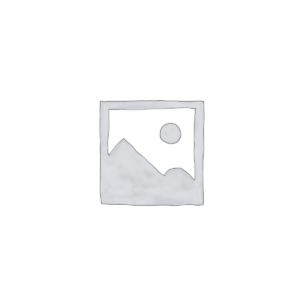Feeling lost or stuck? Louise Hay’s teachings have provided solace and direction for millions. This post explores Hay’s life, philosophy, and practical techniques, offering a path toward self-love and healing.
Table of Contents:
- Understanding Louise Hay’s Philosophy
- From Trauma to Triumph: Louise Hay’s Personal Journey
- Putting Louise Hay’s Philosophy Into Practice
- Louise Hay: Her Impact and Criticism
- A Legacy of Self-Love and Empowerment
- Conclusion
Understanding Louise Hay’s Philosophy
Louise Hay’s work centers on the idea that thoughts create reality. Negative thoughts can lead to unhappiness and even physical ailments. Hay believed individuals possess the power to change these outcomes.
The Power of Affirmations
Hay promoted replacing negative thoughts with affirmations. These short, empowering phrases encourage a positive mindset. Instead of self-criticism, Louise Hay recommended focusing on positive aspects. Her philosophy involves repeating positive statements about your present circumstances. She suggested keeping it simple to effectively start reprogramming your subconscious mind.
Consistent affirmation practice can shift your outlook and impact well-being. Explore Hay House online learning and unlimited audio options for further guidance. Begin with their inspirational oracle cards or the guided journals if you’re starting. Consider Louise Hay’s free audiobook on love to further embrace her teachings.
Louise Hay and the Mind-Body Connection
Hay believed unresolved emotional issues could manifest physically. For example, chronic back pain might stem from financial fears. This highlights the connection between mind and body, even after surgeries.
Her 1976 book, Heal Your Body, details these connections. Author Louise Hay referred to it as “the little blue book,” a reference guide to the mental causes of physical problems. While Hay’s little blue book is insightful, it’s wise to explore various self-help perspectives, as found on Nursing Clio.
From Trauma to Triumph: Louise Hay’s Personal Journey
Born in 1926, Louise Hay experienced a difficult childhood filled with poverty and abuse. These early hardships inspired her positive philosophy. Hay found healing from these early childhood hardships. This eventually inspired Louise to formulate her own self-help ideologies.
Facing a cancer diagnosis later in life, she declined traditional treatments. She opted for affirmations, visualizations, and nutritional changes. Alongside affirmations, Louise also sought therapy to support this journey. Hay also documented these ideas in a free audiobook to encourage others. Before changing any healthcare plan, talk to a licensed professional. She believed in choosing thoughts carefully and observing your body’s response to them. Author Louise Hay even credited visualization to the success in her own recovery. Hay’s unique experience of recovering from physical trauma after much work has also gained praise from people all across the globe.
Putting Louise Hay’s Philosophy Into Practice
Start with small steps if new to Hay’s philosophy. Daily positive affirmations and self-reflection can create change. These topics often came up during Hay’s famous self exploration workshops.
Journaling can help identify and replace negative thoughts. Hay House offers tools like The Gift of Gratitude Journal and the 3 Minute Positivity Journal. Journaling for just three minutes each morning can improve your perspective. These guided journals are also an amazing source of inspiration and offer clear cut methods for using and following Hay’s philosophy in your everyday life. It is not merely the act of journaling but also maintaining this habit regularly which Hay credits to life-changing improvements, a subject of her bestselling You Can Heal Your Life.
Louise Hay: Her Impact and Criticism
Louise Hay has sold over 50 million books globally, impacting countless lives. Even celebrities, such as actor Dolph Lundgren, acknowledge her influence on their perspective.
Despite her positive message resonating with many, some criticize Hay. Some claim she blamed individuals for their illnesses. This critique focuses primarily on physical illnesses. Hay’s cancer recovery claims, using alternative treatments, also drew criticism. Hay also suggests purchasing power thoughts books or oracle cards to further deepen your learning, but some experts do not agree with all of Hay’s healing ideas.
Her unconventional healing anecdotes drew attention. These healing anecdotes can also help some learn more about the early stages of modern medicine. For the reader’s well-being, Hay’s health advice should be taken with healthy skepticism. Consult healthcare practitioners for health concerns. Hay emphasized self-love as essential to healing. Many find Louise Hay’s core message encouraging, despite criticisms.
A Legacy of Self-Love and Empowerment
Louise Hay founded Hay House, Inc., a publishing company supporting countless self-help authors. Authors such as Dr. Wayne Dyer and Dr. Christiane Northrup have benefitted from Hay’s legacy and work.
For over three decades, both The Hay Foundation and Hay House have supported those with chronic illnesses. Louise passed away at age 90 on August 30, 2017, in San Diego, CA. Her message continues through various programs at Hay House.
Hay’s powerful message continues today. Hay House offers various programs, including audio programs, inspirational card decks, and Hay House Publishing books. You can learn more at HayHouse.com, as described on their Louise Hay Legacy page.
Conclusion
Louise Hay’s message about the power of thoughts and beliefs has impacted people worldwide. Her simple, practical approach has improved many lives. While the debate around mindset’s power over physical disease continues, negative thinking can certainly affect one’s outlook.
Even small shifts towards positivity, using Louise Hay’s techniques, can lead to lasting change. Louise believed having the ability to make a decision and change the direction of how a situation is heading allows us to move from feeling at the effect of it to a cause for change.
She encourages starting with simple techniques and making small progress towards being positive to be more at the cause of any next positive development, big or small. Hay leaves behind an inspiring legacy thanks to programs like the Hay Foundation.
